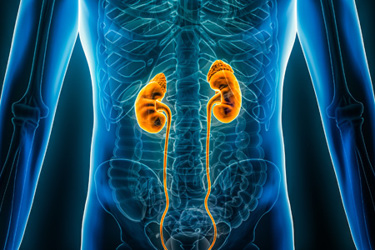Proximal Tubule Kidney-Chip For Modeling Human Physiology

Understanding how kidneys eliminate waste and toxins is crucial for investigating renal physiology and evaluating the nephrotoxicity of novel compounds in drug development. Given the complex physiology of the kidney, there is a growing need to establish more reliable and physiologically relevant model systems for studying renal physiology and diseases. Traditionally, researchers have relied on two-dimensional (2D) cell cultures of established kidney cell lines or primary human proximal tubule cells to study kidney pathology and toxicity. However, these conventional models lack physiologically relevant cytoarchitecture and a dynamic microenvironment, making them poor predictors of nephrotoxicity and drug behavior in the context of translation into the clinic.
In response to the limitations of 2D cell cultures, organoid cultures have been developed to mimic the 3D cytoarchitecture of the human kidney. Despite their advantages, organoids have limitations such as a lack of maturation and vascularization, hypoxia and metabolic deficiencies, off-target cell populations, and challenges with scalability and reproducibility. While animal models have served as the standard for assessing nephrotoxicity and safety in drug development and discovery, they are also limited and often fail to predict clinical outcomes accurately. Consequently, enhanced preclinical models that better mirror kidney physiology and build an improved drug safety profile are needed.
Organs-on-Chips technology is a promising solution for addressing some of these challenges. Learn how Organs-on-Chips could more accurately predict clinical responses by providing a platform for assessing the structural, mechanical, transport, and absorptive properties aligned with human physiology.
Get unlimited access to:
Enter your credentials below to log in. Not yet a member of Drug Discovery Online? Subscribe today.
